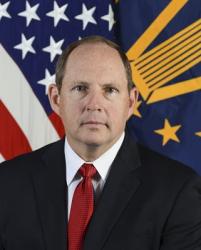

10:00 am EST - 12:00 pm EST
Past Event
10:00 am - 12:00 pm EST
1779 Massachusetts Avenue N.W.
Washington, DC
20036
On December 4, Wounded Warrior Project (WWP) and the Foreign Policy program at Brookings hosted a panel discussion in the Choate Room at the Carnegie Endowment for International Peace about the most pressing issues facing America’s wounded, ill, and injured service members and veterans.
Since September 11, 2001, 3.3 million Americans have served in uniform. As of November 14, 2018, the Defense Department reports that 6,918 have died and 52,774 service members have been wounded in action, but this is just a fraction though of those who are estimated to have been adversely impacted by the longest war in American history. The Department’s own Defense and Veterans Brain Injury Center reports that more 380,000 have sustained traumatic brain injuries. In 2008, RAND estimated that “nearly 20 percent of military service members who have returned from Iraq and Afghanistan reported symptoms of post-traumatic stress disorder or major depression,” and in 2014, that there were an estimated 5.5 million military caregivers of all generations in the United States. The need for services and support continues to grow even as the numbers of killed and wounded decline, and the public’s interest and involvement wane.
Every year, in an effort to learn more about their physical, social, economic and mental health needs, Wounded Warrior Project conducts the nation’s largest and most comprehensive survey of veterans who have sustained both the physical and hidden injuries of America’s wars. This year marks the survey’s ninth issuing and the first time that 5-year trends will be released. Panelists addressed current trends in wounded veterans’ backgrounds, physical and mental well-being, and economic empowerment.
Panelist



Joshua Rovner
July 2, 2025

Ryan Hass
July 1, 2025

Mara Karlin, Fred Dews
June 24, 2025